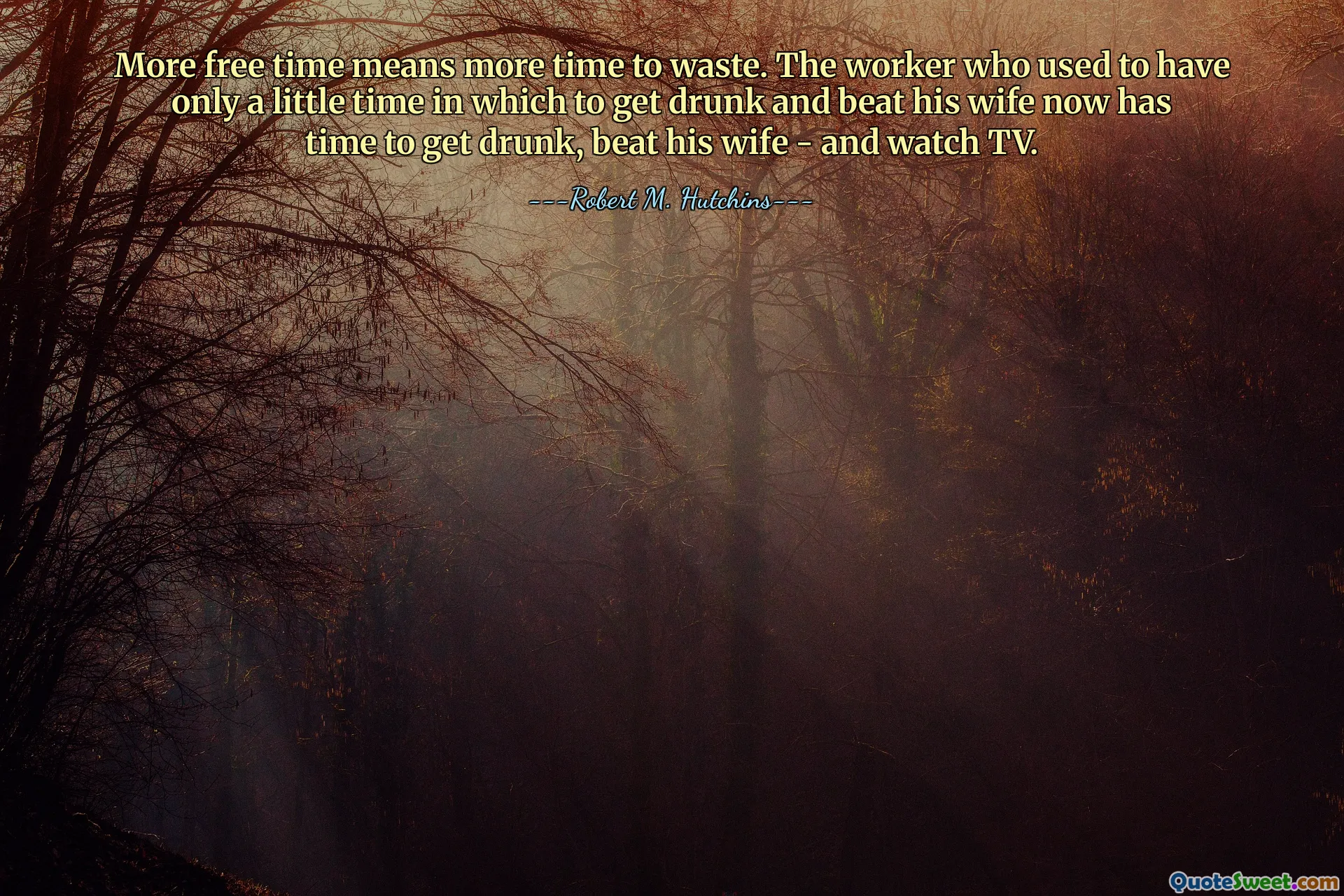
More free time means more time to waste. The worker who used to have only a little time in which to get drunk and beat his wife now has time to get drunk, beat his wife - and watch TV.
This quote offers a stark commentary on how the acquisition of free time, often perceived as a positive development, can inadvertently lead to negative consequences if not managed wisely. It underscores the idea that increased leisure can be a double-edged sword. While more free time generally suggests the potential for personal growth, relaxation, and productivity, the quote reminds us that without purposeful engagement, it can also foster boredom, destructive habits, and unhealthy dependencies. The speaker highlights how leisure pursuits are not inherently beneficial—if misused, they may exacerbate existing social issues like violence or addiction.
The mention of activities such as getting drunk, beating one's wife, and watching television points to not just personal leisure, but also societal and cultural patterns that can become detrimental when unregulated. It hints at the importance of purpose and moderation in leisure activities, emphasizing that having more free time doesn't necessarily improve one's condition, but can reinforce destructive behaviors if one's circumstances or mindset are not conducive to positive use of free time.
In the broader context, this quote serves as a reflection on modern society’s habits and the unintended consequences of societal progress. It encourages us to consider how we allocate and utilize our free time, urging the importance of mindfulness and intentionality to avoid falling into cycles of wasted or harmful leisure. Ultimately, it promotes awareness of the responsibilities that come with leisure, underscoring that simply having more time is not an end in itself—how we choose to spend it determines the quality of our lives and communities.








